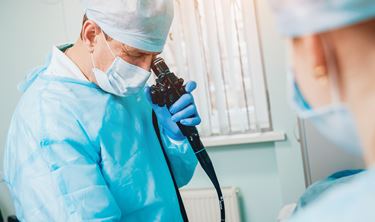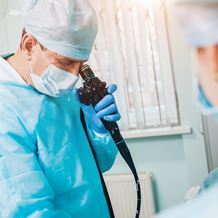Patient resources Gastro-oesophageal Reflux Disease (GORD)

- Home
- Our Hospitals
- St Vincent’s Private Hospital Toowoomba, QLD
- Patient Information
- Gastro-oesophageal Reflux Disease
Important information for all patients
Please read prior to admission
What is GORD?
GORD is Gastro-oesophageal Reflux Disease, it occurs when stomach acid travels up into the oesophagus – this is also known as reflux.
Most adults over the age of 40 will, at some stage will experience reflux, also known as heartburn.
Symptoms
The most common symptoms of GORD include:
- Heartburn
- Regurgitation
- Difficulty swallowing
- Nausea or vomiting
- Persistent cough
- Bad breath
- Laryngitis
- Bloating or belching
- Vomiting blood
Causes
GORD is most commonly related to an issue with a weakness in the lower oesophageal sphincter, which is the muscle around the bottom of the oesophagus (food pipe) that helps to keep the contents of your stomach from rising back up the oesophagus. When this sphincter is weakened it may not close properly and allows acid to leak up into the oesophagus causing symptoms such as heartburn.
While it is not always clear why this becomes weakened, it is more likely to occur:
- When people are overweight or obese
- Consume a diet high in fatty foods, as they take longer to digest
- Pregnancy can cause weakness muscle due to hormonal changes and increased pressure on the stomach during pregnancy
- Alcohol, tobacco, coffee & chocolate may cause the muscle to relax
- Hiatus Hernia
- Gastroparesis – where the stomach takes longer to dispose of stomach acid
- Stress
- Some medications, such as aspirin
- Connective tissue disorders
Treatment
Changes to lifestyle are essential in management of symptoms of GORD.
- Reducing intake of certain foods such as - fatty foods, chocolate, spicy foods, coffee and alcohol.
- Cease smoking as tobacco smoke can irritate the digestive system.
- Losing even a small amount of weight if you are overweight or obese.
- Having small more frequent meals instead of 3 large meals each day and having the evening meal 2 to 3 hours before going lying down to sleep. Raise the head of the bed if your symptoms are worse at night.
- Your doctor may also review your medications to ensure that they are not making the symptoms worse or may prescribe you medication such as antacids or a proton pump inhibitor (PPI), to help reduce the amount of acid in your stomach
It is important to discuss with your doctor if the treatment is not working for you. Surgery is only required in a small percentage of cases.
For most people GORD is easily treated, but in some cases it may have complications if left untreated GORD can lead to oesophageal ulcers, oesophageal stricture, Barrett’s oesophagus and oesophageal cancer.
References
https://www.health.harvard.edu/diseases-and-conditions/gastroesophageal-reflux-disease
https://www.healthdirect.gov.au/gord-reflux
https://gutfoundation.com.au/gord-hiatus-hernia-reflux-and-barretts-oesophagus /
https://sydneygutclinic.com/wp-content/uploads/2019/08/Heartburn.pdf
https://www.gastromedicine.com.au/gastro-oesophageal-reflux-disease-gord/


